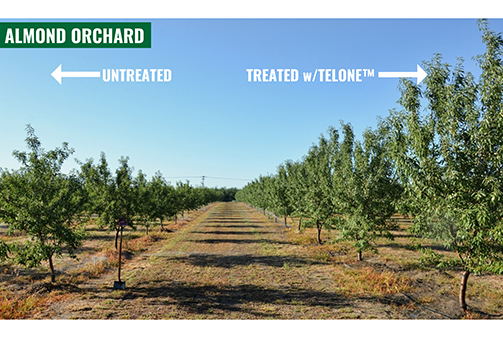UC-Davis Study Raises Doubts About “Dirty Dozen” List
Tweethttp://platform.twitter.com/widgets.js
A study by the Department of Food Science and Technology at the University of California-Davis (UC-Davis) challenges conclusions published by the Environmental Working Group (EWG) in their list of the “Dirty Dozen” fruits and vegetables to avoid.
The study, conducted independently by UC-Davis food scientists, states that “The methodology used to create the ‘Dirty Dozen’ list does not appear to follow any established scientific procedures,” an argument advanced by several other scientific authorities who are familiar with the EWG’s publication.*
The UC-Davis study was published in The Journal of Toxicology (Volume 2011), a peer-reviewed journal specializing in original research articles in areas of toxicology. Authors of the study are Carl Winter, Ph.D., director of the university’s FoodSafe Program and a food toxicologist who specializes in research in the detection of pesticides, and Josh Katz, a fourth-year doctoral student at UC-Davis.
The University study appears to cast doubt on the credibility of the entire “Dirty Dozen” list. “Results from this study strongly suggest that consumer exposures to the ten most common pesticides found on the ‘Dirty Dozen’ commodities are several orders of magnitude below levels required to cause any biological effect.” It continues, “The EWG methodology also does not appear to be capable of justifying the claim that ‘consumers can lower their pesticide consumption by nearly four fifths by avoiding conventionally-grown varieties of the 12 most contaminated fruits and vegetables’ since no effort to quantify consumer exposure was made.”
The authors noted that their findings suggest that the potential consumer risks from exposure to those foods on the “Dirty Dozen” list are negligible and, “…cast doubts as to how consumers avoiding conventional forms of such produce items are improving their health status.”
Winter and Katz concluded by noting that their findings conclusively demonstrate that consumer exposures to the most frequently detected pesticides from commodities on the “Dirty Dozen” list are at negligible levels. And it charged that the EWG methodology is not sufficient to allow meaningful ranking among commodities or that substituting organic forms of the commodities on the “Dirty Dozen” list will lead to measurable consumer health benefit.
“We have long known that blueberries are among the healthiest of foods,” said Mark Villata, Executive Director of the North American Blueberry Council, an organization that represents the cultivated blueberry industry. “The UC-Davis study comes as no surprise to us. We hope it will open the eyes of unsuspecting consumers who have many good reasons to eat blueberries and other commodities on the list, but were given misleading information by the Environmental Working Group about a level of risk from consuming them. We now know that is not true.”
To see the complete UC-Davis study, click here.
*For additional information, click here.
Source: North American Blueberry Council http://www.nabcblues.org









